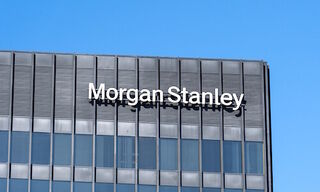Documents released by a British parliamentary committee unveiled extensive lobbying by ex-prime minister David Cameron for Lex Greensill’s supply chain finance group.
The Financial Conduct Authority (FCA) is formally investigating Greensill Capital, according to a letter from the financial regulator’s chief executive Nikhil Rathi to Conservative MP and chair of the Treasury Committee Mel Stride.
Rathi also noted that the FCA was cooperating with authorities in Germany, Australia, Switzerland and other countries on the matter.
The letter was part of a release of documents by the Treasury Committee detailing various responses to Greensill-related inquiries and, most notably, extensive lobbying by former prime minister David Cameron.
Lobbying Count: 56
According to the released documents, Cameron lobbied for Greensill 56 separate times last spring via text messages, Whatsapp messages, email and phone calls.
Six different ministers and a similar number of government and Bank of England officials were contacted for reasons ranging from call arrangements to communications about the merits of Greensill's business.
Those contacted by Cameron include Cabinet Office minister Michael Gove, chancellor Rishi Sunak and permanent Treasury secretary Sir Tom Scholar.
Covid-19 Debt Scheme
A noteworthy subject of Cameron’s communication included an attempt to change rules related to Covid-19 debt schemes to benefit Greensill Capital.
Although the attempt failed, Greensill would subsequently gain access to £400 million through another government loan scheme for its clients.
Cameron is scheduled to appear before the Treasury select committee on Thursday.
Lex Greensill Denies Friendship
Founder Lex Greensill said during the Treasury committee hearing on Monday that he wouldn’t call himself and Cameron «friends» and that he simply wanted to «give something back» when he was brought in to advise the former administration on supply chain finance.
According to the Australian financier, the ex-prime minister was not a director but a «PAYE (pay as you earn) employee» with less than 1 percent of share options in the group which at one point was valued at about $7 billion.
Cameron became an advisor to Greensill after leaving office and had a «standing invitation» to the supply chain finance group’s board meetings which he regularly attended.
Not a «Fraudster»
In the three hours of questioning by MPs, Greensill denied that he was a «fraudster» despite heavy use of future receivables and stressed that the «ultimate» cause of the group’s fall was due to insurance withdrawal.
«At no point would I or my firm have engaged in financing receivables which we knew to be fraudulent,» he said.


























